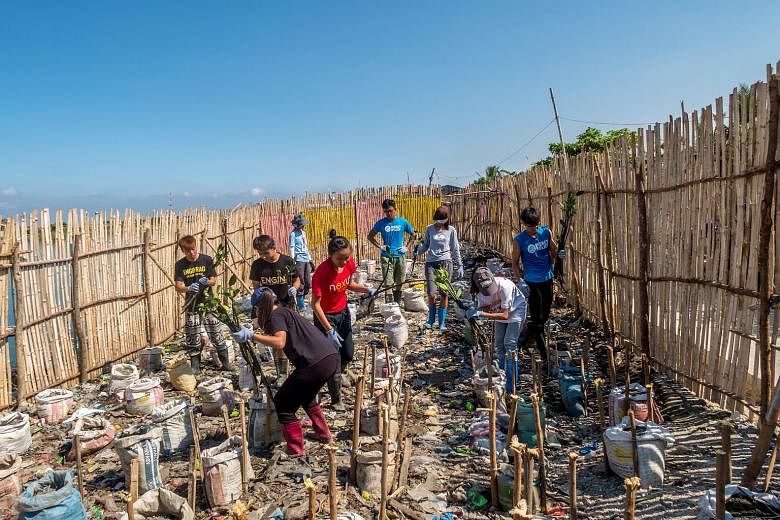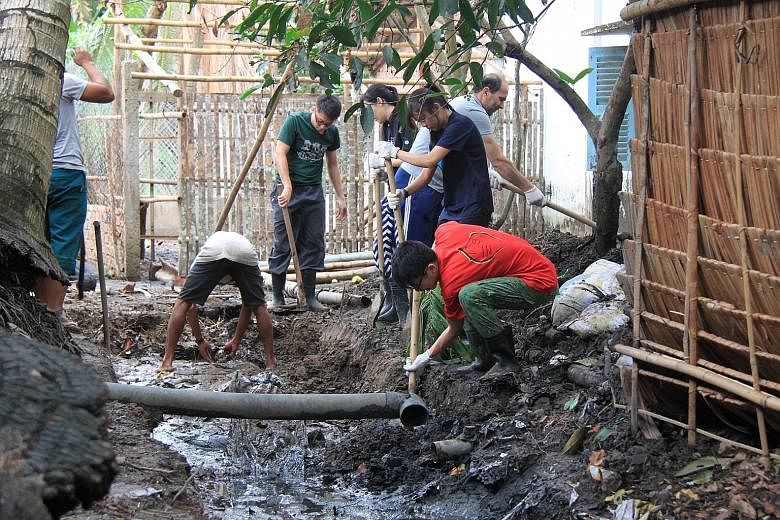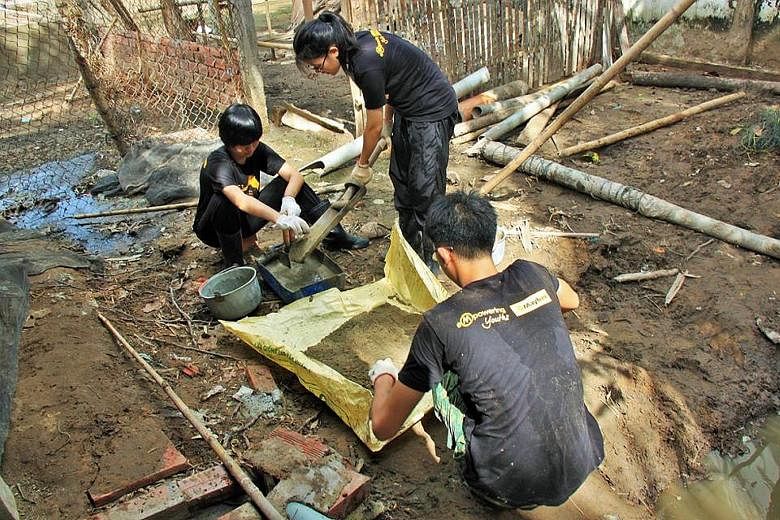It took just one biogas system for a family in Vietnam to save nearly half its household income.
Two teams from Nanyang Technological University (NTU) created biogas systems that convert the waste of pigs raised by the locals to methane, which can be used as a cooking gas. The treated waste can also be an organic fertiliser for farming.
The idea of building biogas systems came from the engineering students in the teams.
They were among more than 200 local university students who took part in Maybank's eMpowering Youths Across Asean programme launched here in 2015. It offers the student groups up to $30,000 each for projects that alleviate poverty in South-east Asia. This amount is said to be among the largest by a private organisation for overseas community projects done by local youth.
Many participants went beyond typical activities, such as teaching English and habits of hygiene, to creating systems that had a more lasting impact. The projects, mostly carried out last year, benefited a total of 1,500 people in Indonesia, Laos, Vietnam and the Philippines.
Each NTU team got $30,000 from Maybank and went to a village in Tra Vinh province in southern Vietnam to build the systems. Both teams built a total of 48 biogas systems in the two villages, one for each household.
Student Donovan Ng, 25, said: "We are grateful for Maybank's support, without which we wouldn't have been able to realise this project. Most of the funds went into the construction materials for the biogas systems, which cost US$500 (S$710) each."
He said that on average, a biogas system helps a family save 45 per cent of its income which would otherwise have been spent on buying cooking gas or fertilisers.
The teams named their work Project Mai - "mai" means "tomorrow" in Vietnamese - to reflect their mission to create a better future for the villagers.
Another team of about 20 students from National University of Singapore (NUS) received $15,000 for its project in the Philippines.
It set up a system to harvest rainwater for household use, as well as a biosand filter made up of layers of sand and gravel. This filter is used to recycle bathroom and kitchen waste water for residential use.
Chemical engineering student Yeo Chun Yee, 20, said the funding let the team build prototype models of the biosand filter to ensure it works. They also planted mangrove trees to prevent floods from rushing inland and destroying houses.
Singapore Management University also had projects funded by Maybank. One of them involved 20 students who helped to install water pipes and solar-powered street lights for a village in the Philippines that was struck by Typhoon Haiyan in 2013 and Typhoon Hagupit just over a year later.
Following the success of the six projects that Maybank sponsored in the first run of its eMpowering programme, the bank announced last week that it will sponsor up to nine projects from local universities this year.
It also plans to leverage on its reach in the region - it has offices in all 10 countries in South-east Asia - and sponsor projects by students from universities in the region.
Mr Shahril Azuar Jimin, chief executive of the bank's philanthropic arm Maybank Foundation, said the programme had allowed participants to better understand the challenges in the region, thus "fostering greater intra-Asean collaboration".
"By regionalising the programme and relying on our regional business footprint in all the 10 Asean countries, we are confident that we can make a bigger positive impact to more needy communities."
The second run of the local programme starts in March. Mr Shahril said the bank could expand the programme to Malaysia, Indonesia and the Philippines, but details are still being firmed up.
Maybank Singapore chief executive Lim Hong Tat said: "We want to raise more awareness among today's youth of the issues faced by different communities and harness their passions and creativity in resolving them.
"We hope to empower them to become change-makers by using social innovation to improve living conditions and lessen poverty."




